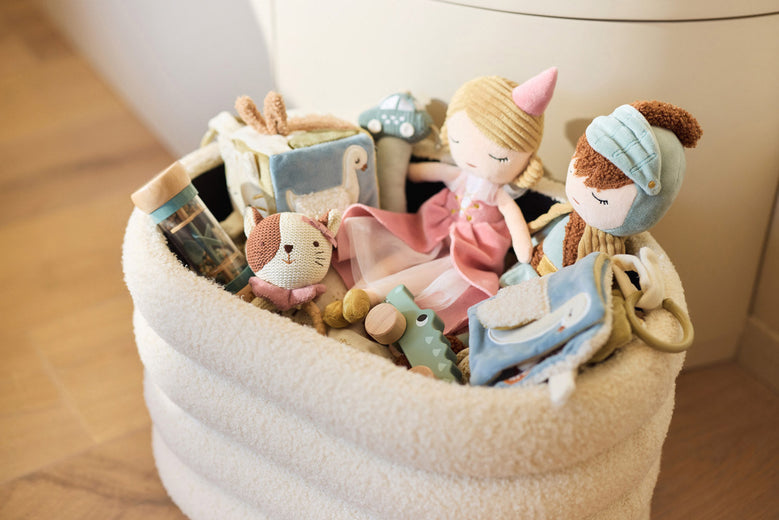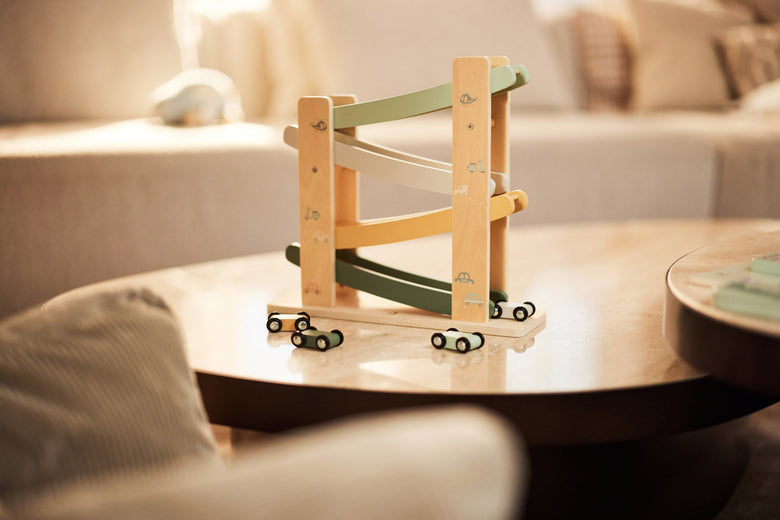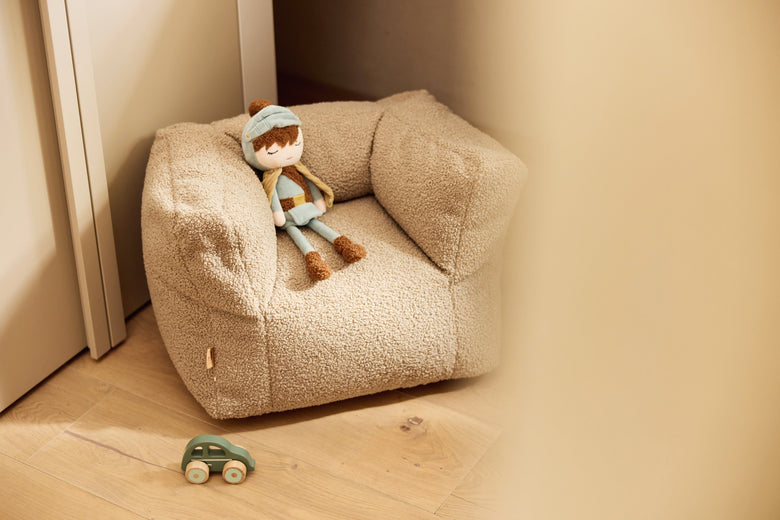02 December 24
5 Baby Sleep Myths Debunked by a Sleep Coach
If you’ve recently had a baby, you’ve probably searched the internet for ways to help your little one sleep better. There’s so much information out there, it’s easy to feel overwhelmed. That’s why Patricia, certified sleep coach at Bureau van Slaap, is here to clarify things. She shares 5 common baby sleep myths and what parents should actually focus on.
1. Your baby needs to sleep according to a strict schedule
Online and in parenting books, you’ll find plenty of daily sleep schedules: a short morning nap, a long midday nap, possibly a late afternoon nap, and bedtime at 7 PM. While that sounds ideal (because it gives you predictability), most babies don’t follow such neat patterns. Some days the morning nap is short, other days it’s the longest. Some babies only take short naps all day.
That’s why at Bureau van Slaap, we work with wake windows instead of fixed schedules. A wake window is the amount of time a baby can stay awake between naps. These windows vary by age and adjust as your baby grows. Putting your baby down at the end of their wake window makes it easier for them to fall asleep and rest longer.
👉 Want to learn more about wake windows? Download our free Wake Window Guide (Dutch only) full of tips and real-life examples.
.
2. Your baby should nap in the light during the day
You’ve probably heard that your baby should nap in daylight during the day and only sleep in the dark at night — to help them learn the difference between day and night. This advice only applies to the first 6 to 8 weeks, while your baby is still developing a circadian rhythm.
After that, it’s perfectly fine (and often helpful!) to let your baby nap in a dark room. Light signals the brain that it’s daytime and time to wake up. So for longer, more restful naps, darken the room from about 8 weeks onwards.
3. Babies shouldn’t sleep too much during the day
People often say: “Your baby wakes up at night? Let them nap less during the day!” Unfortunately, the opposite is true. A baby who doesn’t get enough daytime sleep can quickly become overtired — and overtired babies actually sleep worse at night.
Good daytime sleep supports better nighttime sleep. And don’t worry, most babies won’t sleep too much. Instead of counting hours, observe your baby: are they waking up happy, growing well, and hitting milestones? Then they’re likely getting the sleep they need.
💡 Pro tip: Try not to let a single nap last longer than 2.5–3 hours — save the long stretches for nighttime.
4. A later bedtime means your baby will wake up later
Many parents with early risers (babies waking before 6 AM) are told to try a later bedtime. But keeping your baby awake too long in the evening leads to overtiredness, which actually increases the chance of early wake-ups.
Sometimes, a later bedtime can help, but only if your baby has an extra late nap to support staying up longer. Otherwise, a later bedtime without added rest can backfire.
And remember: early waking can have many causes — like hunger or a room that’s too bright. At Bureau van Slaap, we’re happy to help you figure it out.
5. Babies sleep better in their own room
In the early months, most babies sleep in their parents’ room. It makes night feeds easier and supports bonding. Later on, some claim babies sleep better in their own room. But honestly? It depends on your child.
If co-sleeping works for you and everyone’s sleeping well, there’s no need to change it. Around 6 months, many parents notice they start waking each other more easily. If that’s happening, it might be time to transition to separate rooms. But if you’re all sleeping well together — no need to rush it
Need help with your baby's sleep?
Send us an email — we’re always happy to think along with you! Patricia and her team at Bureau van Slaap support families with gentle, loving sleep coaching. That means no cry-it-out methods or rigid routines. Want more sleep tips?
Follow Bureau van Slaap on Instagram or visit their website. You can also request their free sleep tips guide for more peace and rest in your home.


